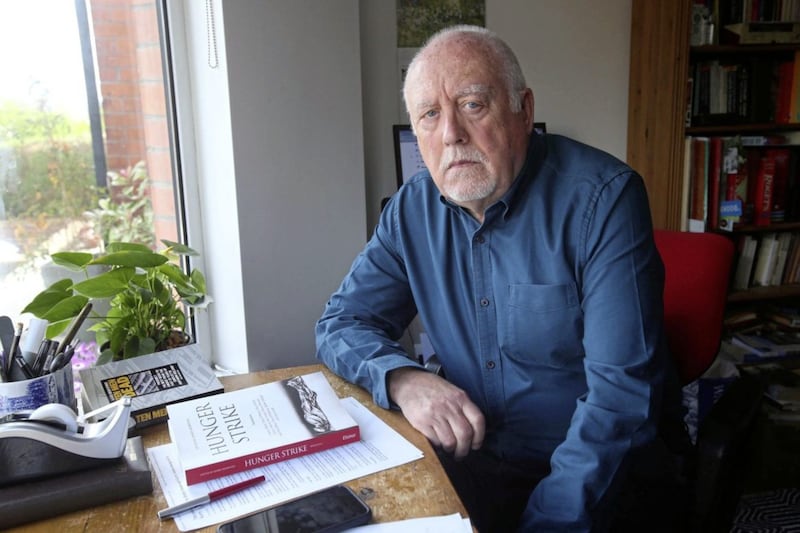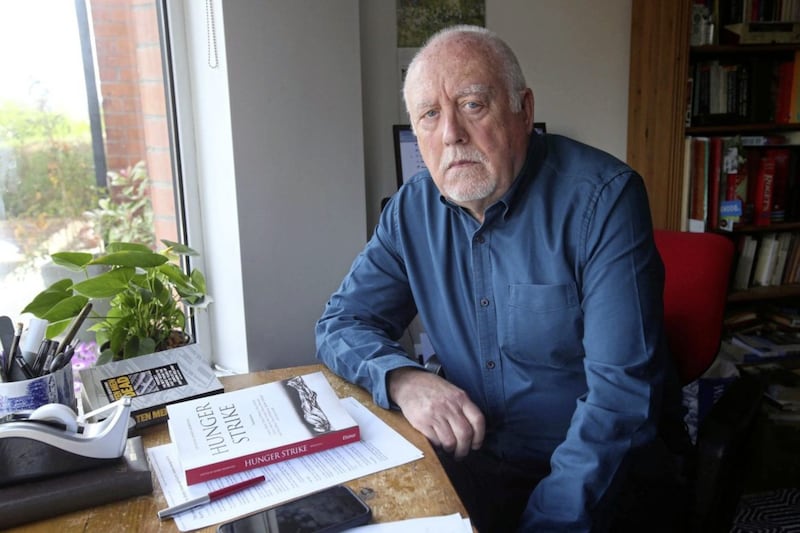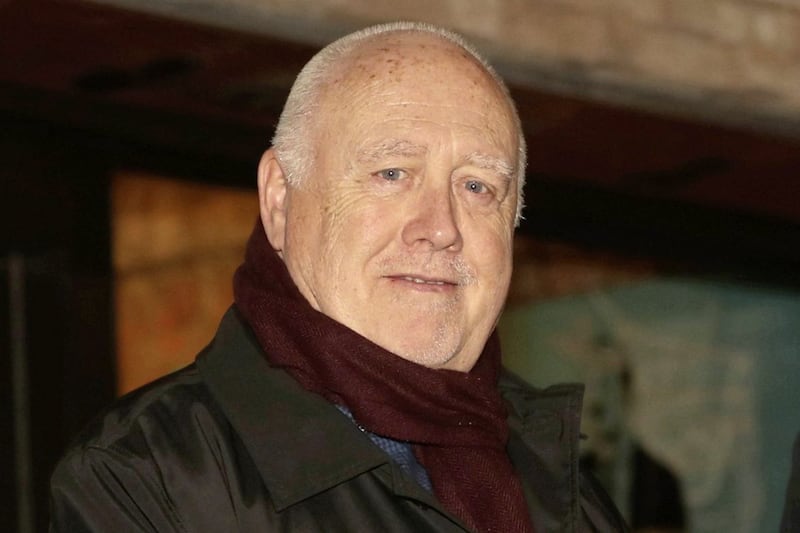THE REPUBLIC’S establishment parties have appropriated the name 'Ireland' with the “deliberate aim of casting the north as the other”, according to Sinn Féin’s former publicity director.
Danny Morrison’s latest book is a polemic against what he terms “Free Statism and partitionism”, a mentality that has existed for a century, he argues. The one-time Mid Ulster assembly member believes the use of the name Ireland – as opposed to the Republic of Ireland – has increased in the south since the Good Friday Agreement and “intensified” post-Brexit.
He believes it is part of mindset that is content with the status quo and resistant to the idea of a border poll.
‘Free Statism and The Good Old IRA’, launched later this week, combines fresh material with a reproduced pamphlet first published in the mid-1980s by the former An Phoblacht editor.
The pamphlet, which went out of print in the 1990s, explores what Mr Morrison describes as the “hypocrisy” of Fianna Fáil and Fine Gael in celebrating their forebears from the War of Independence, while condemning the modern IRA.
“They repeatedly characterise the IRA of the Tan War period as noble while condemning the modern IRA,” he says.
He points to disappearances overseen by Richard Mulcahy, IRA chief of staff and later a Fine Gael leader, and WT Cosgrave's post-Treaty pledge that he’d be prepared to kill 10,000 republicans for the sake of the new state.
Taoiseach Micheál Martin's praise for Liam Lynch, the former IRA chief of staff who led a guerilla campaign against the British forces, is also singled out for criticism.
“Another example is Pat Magee, who was sentenced for planting the bomb aimed at the British cabinet in Brighton, yet Cathal Brugha proposed machine-gunning the British government front bench from the public gallery of the House of Commons in 1920,” he says.
The author believes the two campaigns, roughly 50 years apart, are “comparable” – something that can be acknowledged without supporting either, he says.
The "double standards" regarding the two IRAs, according Mr Morrison, is part of the broader "partitionist mindset" that is prevalent in the south, manifesting itself in the likes of RTÉ's limited reach across the border and anti-northern sentiment that President Mary McAleese has spoken of.
Mr Morrison believes the notion of separate states has been apparent since partition, when northern nationalists were "abandoned".
"From the very start it was about self-interest – this concept of Free Statism is actually endemic in the DNA of the 26 counties, despite the constitution of the Republic once laying claim to all 32 counties," he says.
“Once we had partition it became embedded and no matter how progressive it has become, it’s stuck in that psyche, which explains the resistance to a border poll."
He says important documents such as the Sunningdale agreement, Downing Street Declaration and Good Friday Agreement don’t refer to Ireland and Northern Ireland as being distinct but that since the dropping of Articles 2 and 3 the practice has become more prevalent.
“In the past 10-15 years, the closer we have come to achieving through constitutional, peaceful means a resolution or increased the potential for a border, the further the 26 county southern parties ran away from the issue," he says.
“This is an attempt to create in effect a partition. It’s using language that suggests there are two nations on the island of Ireland. It’s wilful and with the deliberate aim of casting the north as the other, and making unity more difficult."
His theme, he says, echoes recent observations by Bernadette Devlin McAliskey and Joe Brolly.
The former MP and civil rights campaigner said she felt northern Catholics had been let down by the southern state and that the collective sense of abandonment dates back to partition. Joe Brolly too spoke of northerners feeling let down by south during the Troubles.
:: Free Statism & The Good Old IRA by Danny Morrison is published by Greenisland Press.








